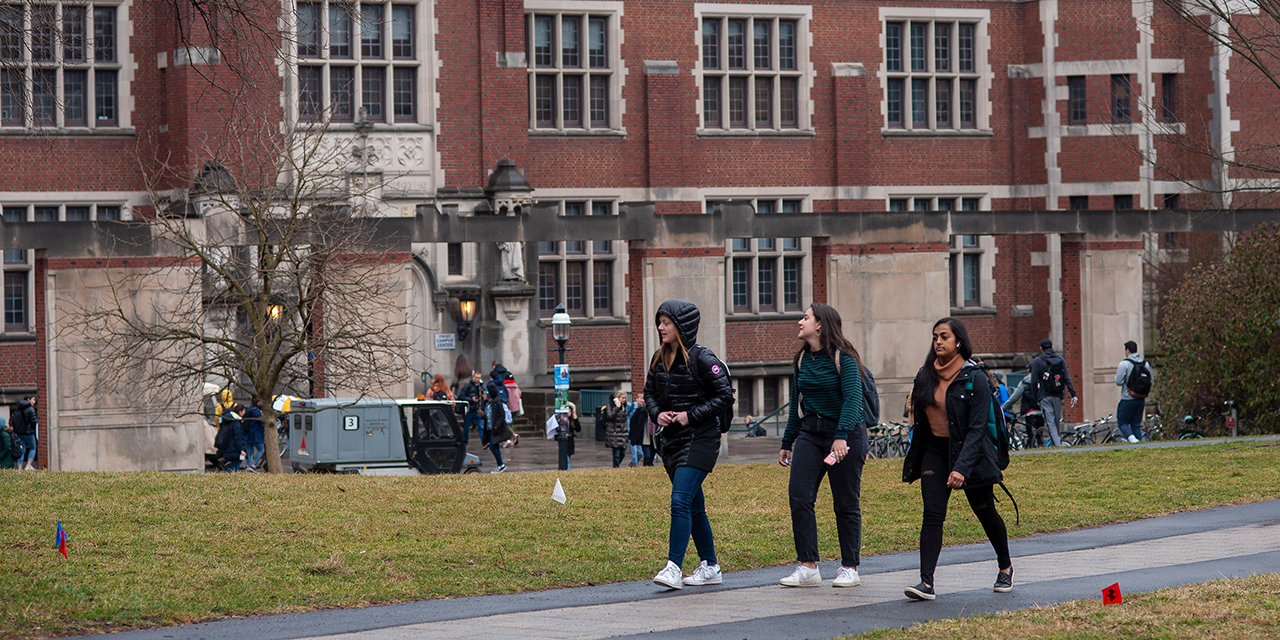
Several years ago, the author Christopher Caldwell changed the conversation with his book The Age of Entitlement. The book argued that the civil-rights regime established in the 1960s marked a fundamental departure from America’s constitutional tradition. Though launched with the noble intention of stopping racial discrimination, Caldwell argued, the Civil Rights Act–and the bureaucracy it spawned–gradually consumed core American freedoms and became a vehicle for entrenching left-wing racialist ideology throughout American institutions.
In the decades that followed, the Right’s response was marked by ambivalence. Some libertarians called for repealing the Civil Rights Act, but—like many libertarian proposals—this was never a political possibility, given the Act’s broad public support. The establishment Right, meanwhile, largely suppressed its private misgivings. Republicans repeatedly voted to expand the civil-rights regime, further embedding dubious concepts like disparate-impact theory into law.
Finally, a reason to check your email.
Sign up for our free newsletter today.
Now, all of this has changed. After mounting a successful fight against DEI, the political Right has come to accept that if there must be a civil-rights regime, it should be one of its own making. Rather than continue to defer to left-wing interpretations of civil-rights law, the Right can now advance a framework grounded in colorblind equality, not racialist ideology.
The first field of battle is higher education. The Trump administration has set its sights on the Ivy League universities, which have not only advanced the ideologies of left-wing racialism but made them administrative policy.
Many Ivy League presidents see themselves as heirs to the civil-rights movement. In fact, they are among the most active practitioners of racial discrimination, stereotyping, and segregation in America today. Shielded by a virtuous public image, elite universities have institutionalized discrimination against disfavored racial groups, implemented DEI policies based on racial rewards and penalties, hired and promoted faculty according to skin color rather than merit, and overseen racially segregated student programs, dormitories, and graduation ceremonies.
The Trump administration has ruptured this illusion. In a series of letters to Ivy League presidents, it has threatened to withhold billions in federal funding, citing violations of the Civil Rights Act of 1964 and other non-discrimination policies.
The argument is straightforward: racial discrimination is wrong whether it targets whites, Asians, and Jews or blacks and Hispanics. Any institution that continues to discriminate based on race is ineligible for federal support.
Critics have called this approach “weaponizing civil-rights law.” But civil-rights laws have always been a weapon—conservatives have finally decided to wield it.
The Ivy League’s presidents are struggling to understand and respond to the moment. Columbia University interim president Katrina Armstrong, caught in the crossfire between the state and the academy, conceded to Trump’s demands—and quickly lost her position. Princeton president Christopher Eisgruber, who has presided over one of the most racially discriminatory academic institutions in the country, has tried to cast himself as a hero resisting President Trump.
I’ve been engaged in an arm’s-length debate with Eisgruber through our respective appearances on the New York Times podcast, during which he invoked my name as an enemy and to which I responded in kind. After carefully listening to his position, I’ve concluded that he understands neither the argument against him nor, frankly, his own. Eisgruber claims to be defending a noble cause—America’s civil-rights tradition. In reality, he is defending his university’s policies of racialist discrimination.
Eisgruber argues that federal intervention is illegitimate, but he has no ground to stand on. Consider the historical precedent: if pressed, I’m sure Eisgruber would concede that President Eisenhower was right to mandate desegregation in Little Rock, Arkansas, in 1957—and to deploy the 101st Airborne Division to enforce it. What he fails to grasp is that, in this analogy, Princeton is Little Rock Central High School, and he is Governor Orval Faubus. Princeton has systematically discriminated on the basis of race and has repeatedly violated the principle of colorblind equality—the core ideal of civil-rights law.
Whatever happens in the coming months, the terms of this debate have now changed. The president has ensured that the civil-rights regime will no longer be a one-way lever to discriminate against “oppressor” groups and to embed left-wing ideologies in elite institutions.
The Right now has the winning argument. Americans support a “colorblind society” over a “race-conscious society” by a margin of more than three to one. Even in left-wing states like California and Washington, voters have consistently passed ballot initiatives showing that they reject racial discrimination in college administration. To the extent that we can push this debate forward, the public will increasingly see figures such as Eisgruber as the villains in America’s racial story.
The important thing for the Trump administration is not to blink. It should use every tool at its disposal to ensure that America’s elite universities adhere to the principle of colorblind equality. If they resist, the president should not hesitate to cut off funding until they comply. Universities are free to operate as independent institutions and reject federal money—but if they choose to accept billions in taxpayer dollars, they must follow the law.
Welcome to the new right-wing civil-rights regime.
Photo by William Thomas Cain/Getty Images
City Journal is a publication of the Manhattan Institute for Policy Research (MI), a leading free-market think tank. Are you interested in supporting the magazine? As a 501(c)(3) nonprofit, donations in support of MI and City Journal are fully tax-deductible as provided by law (EIN #13-2912529).
Source link















